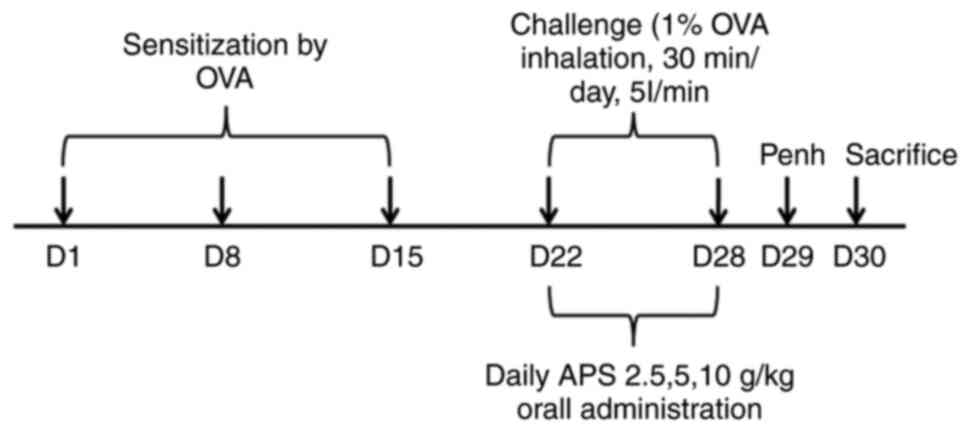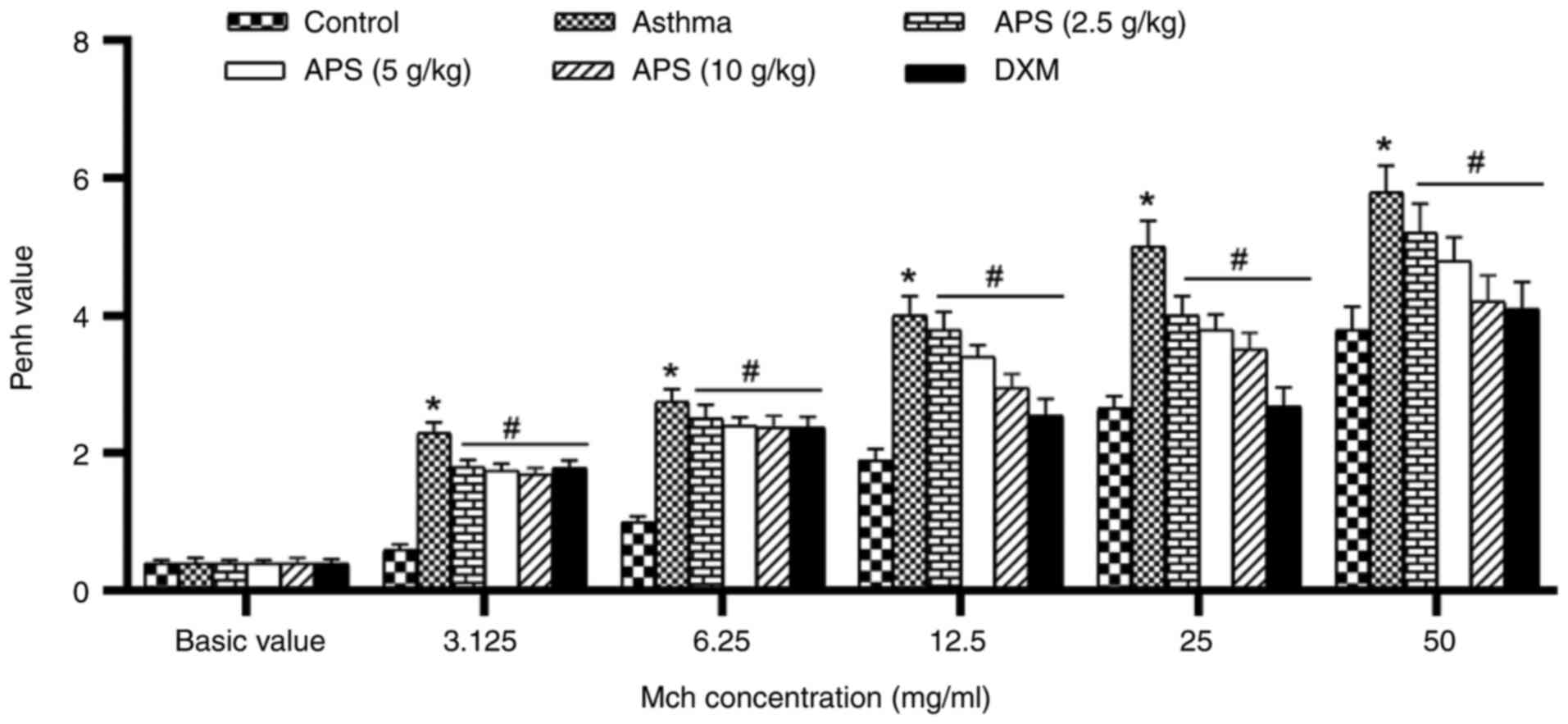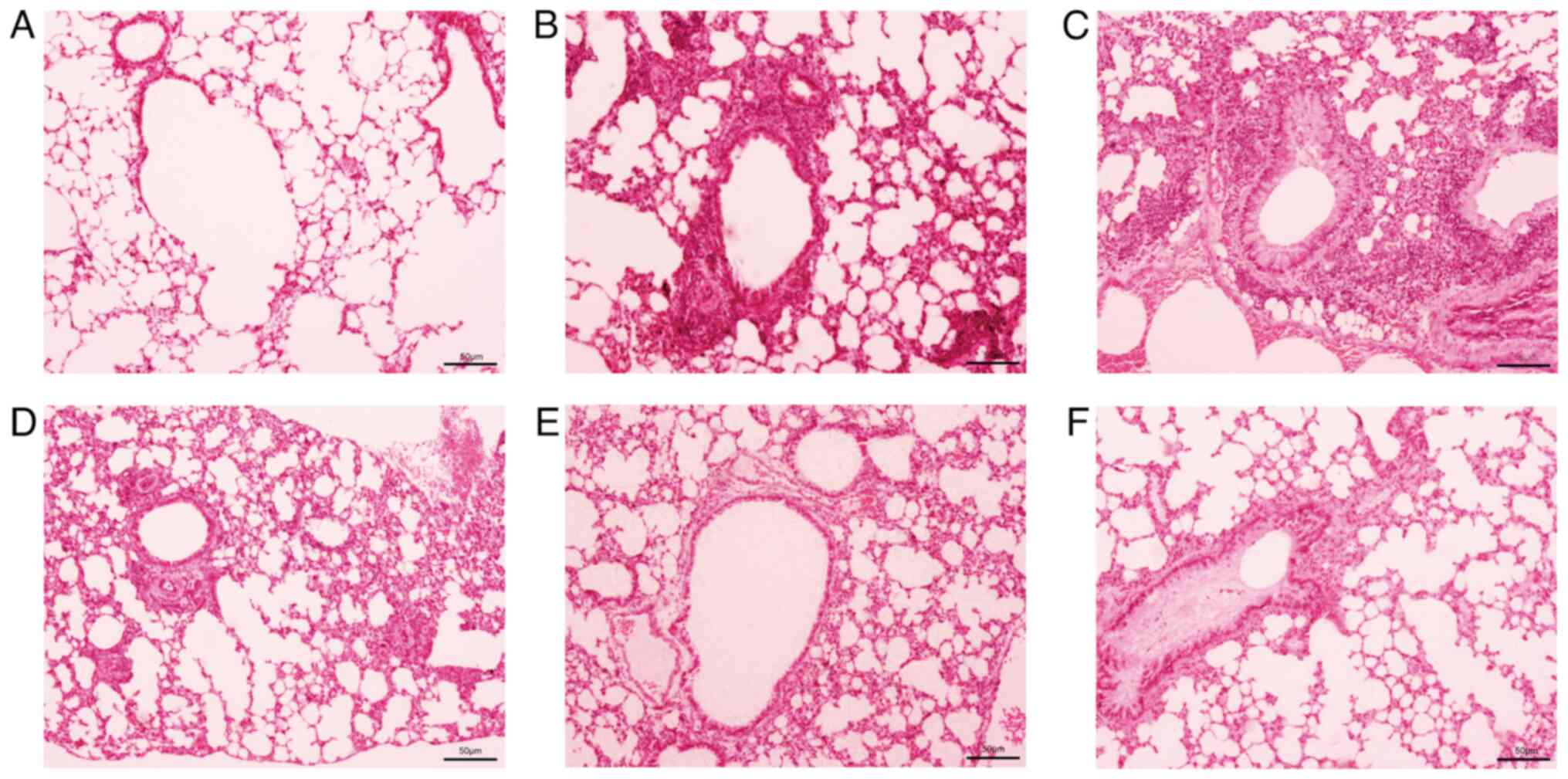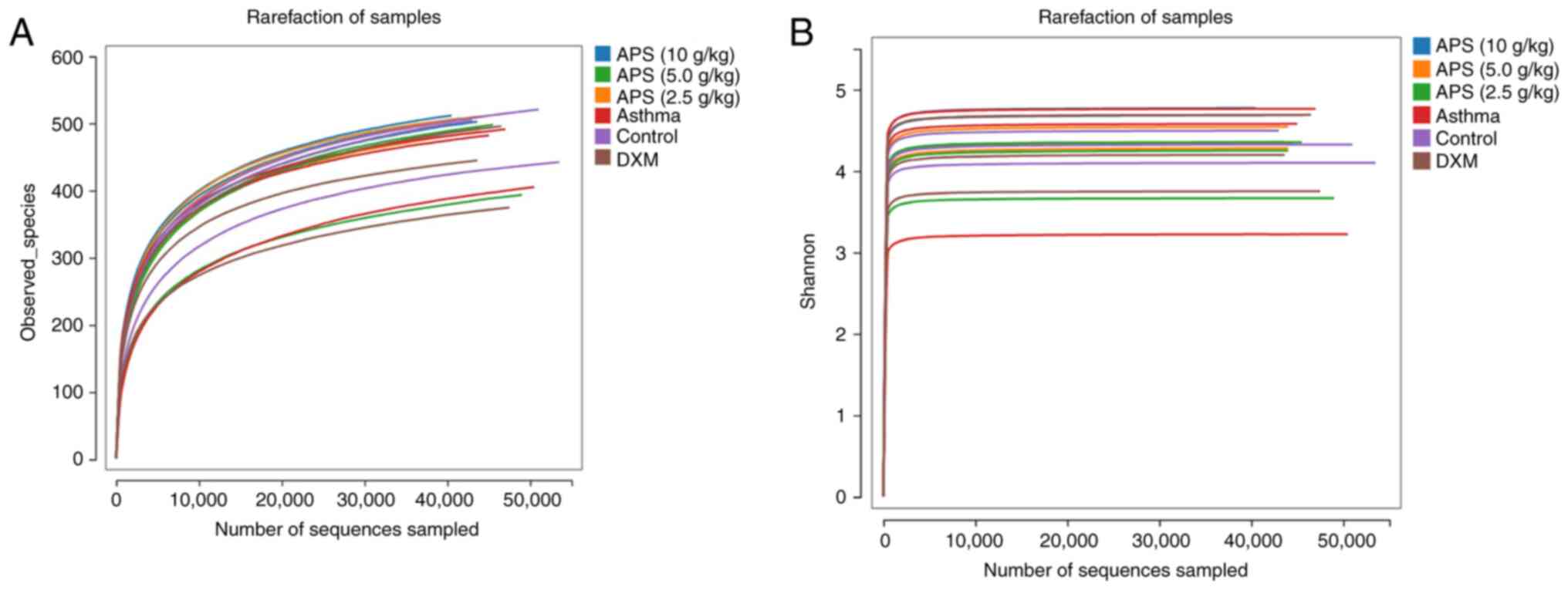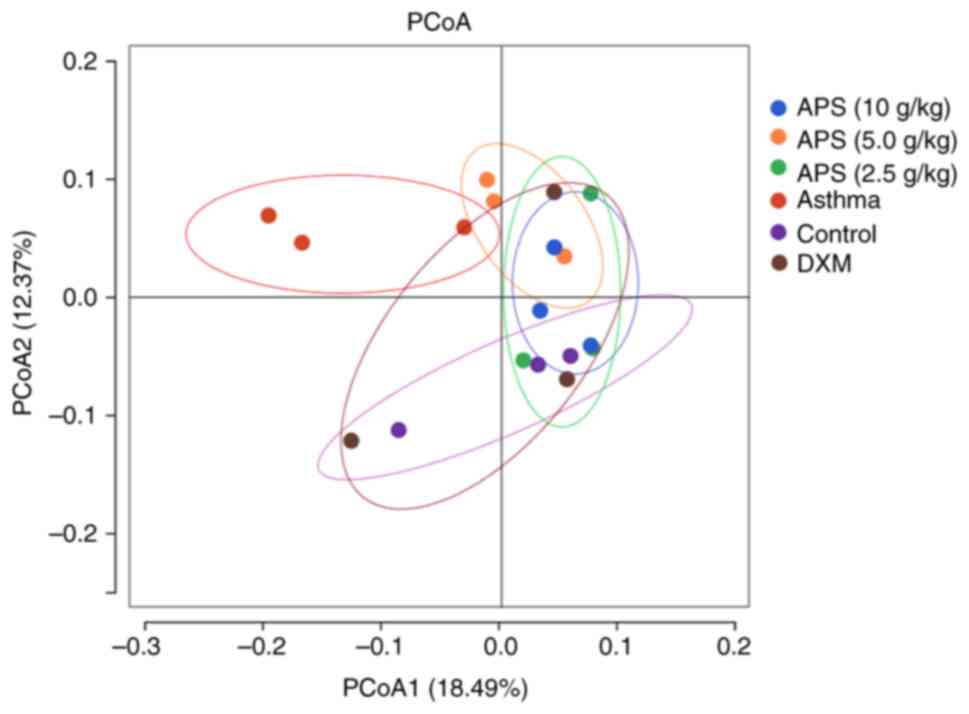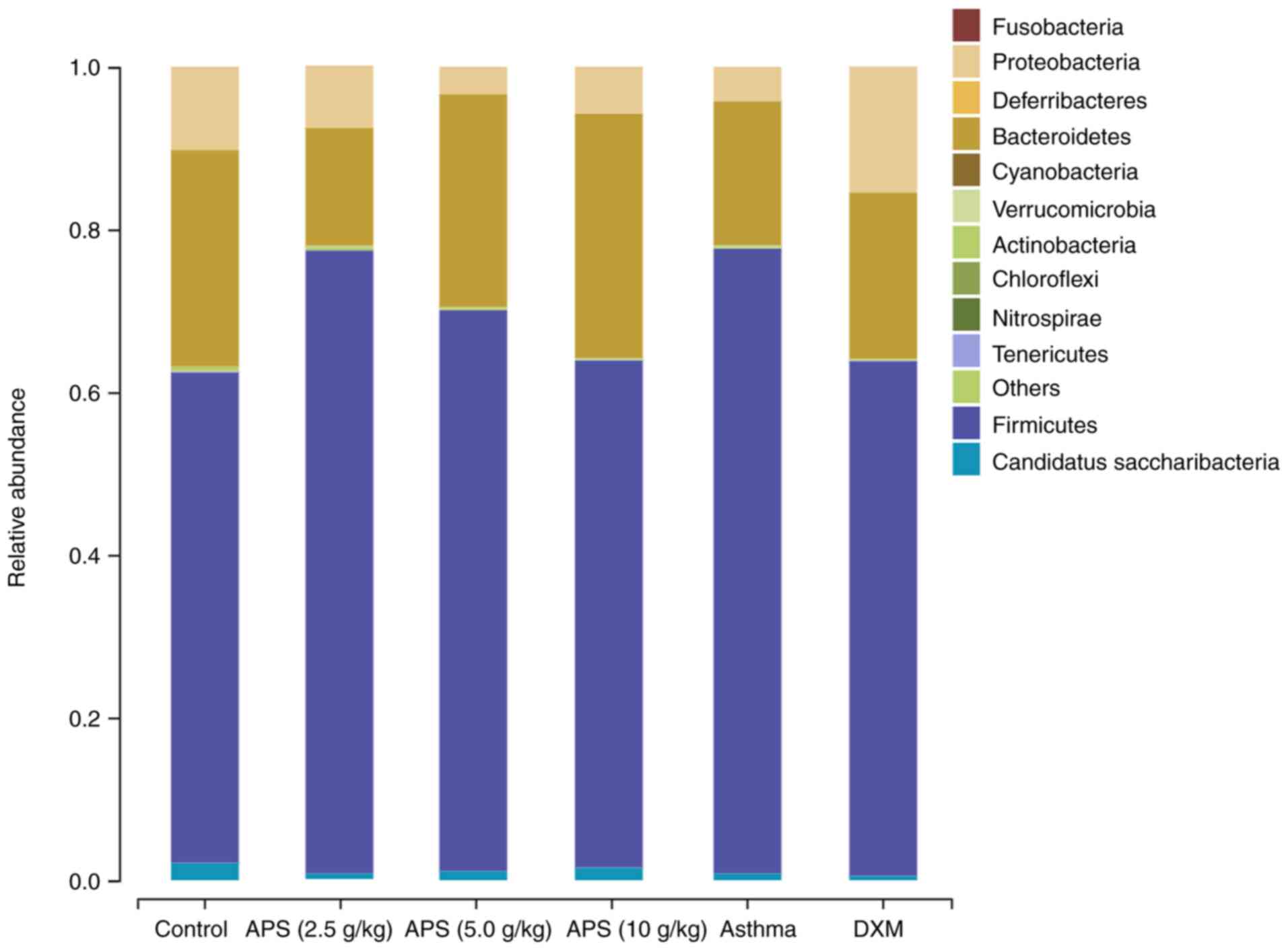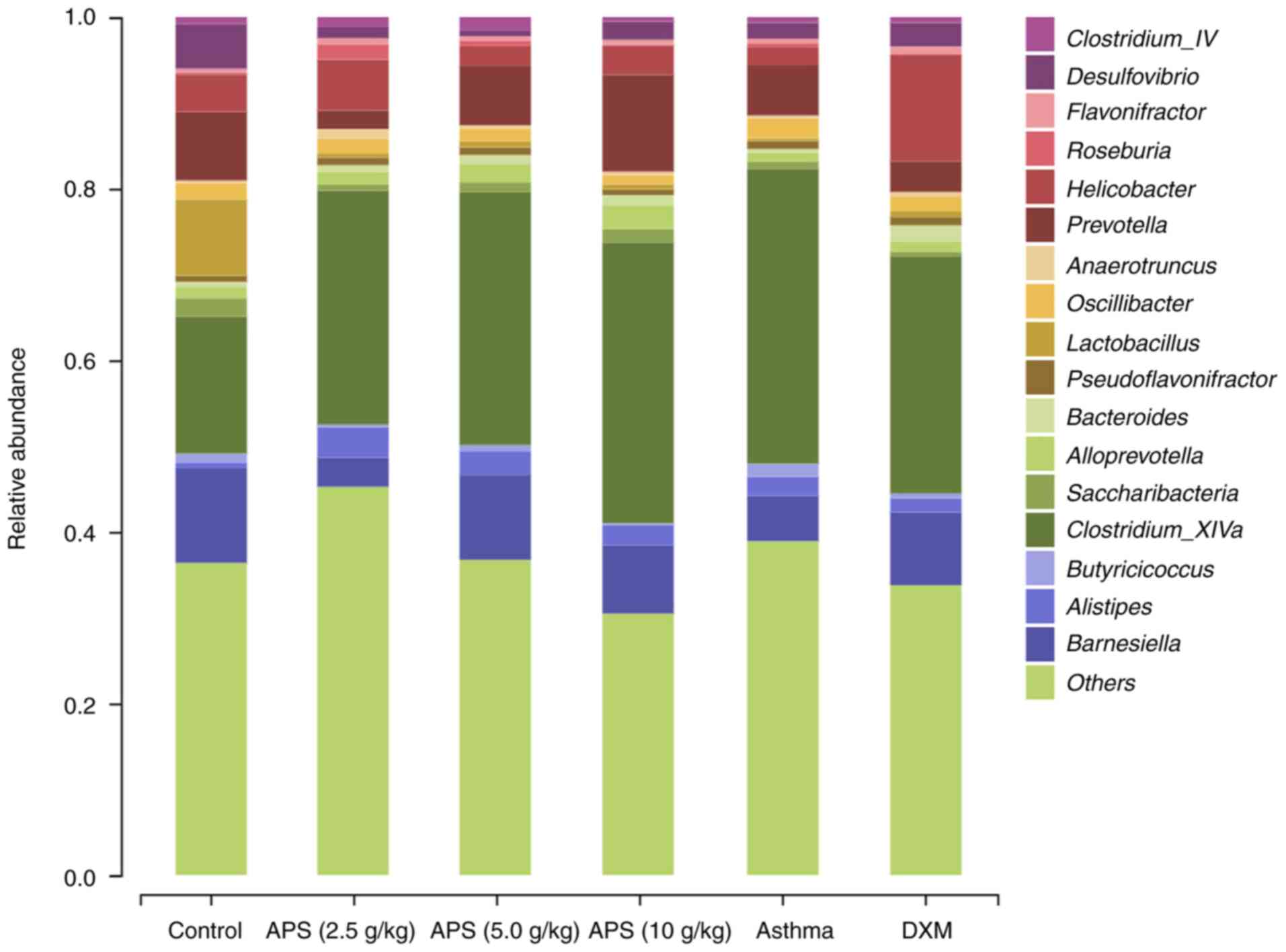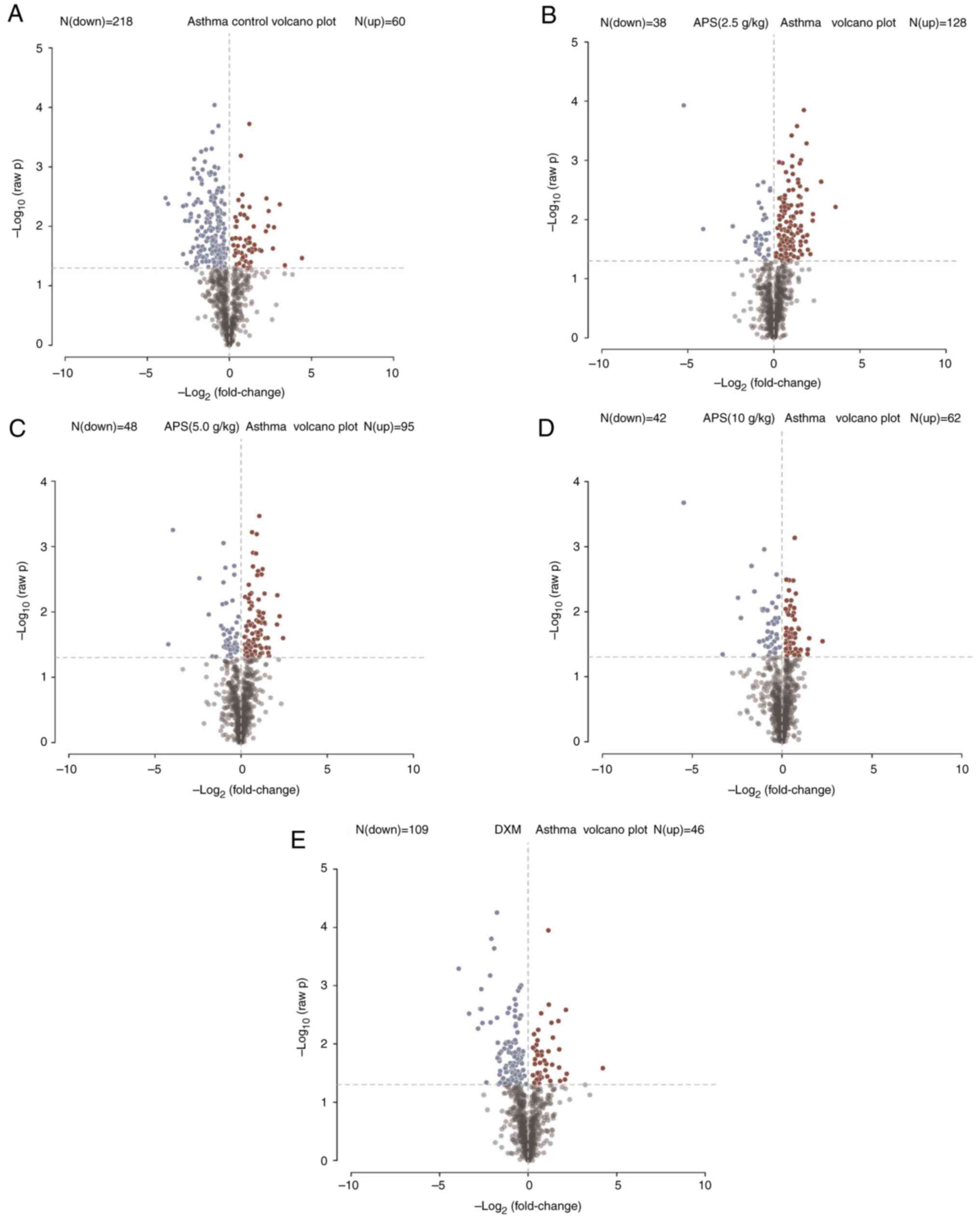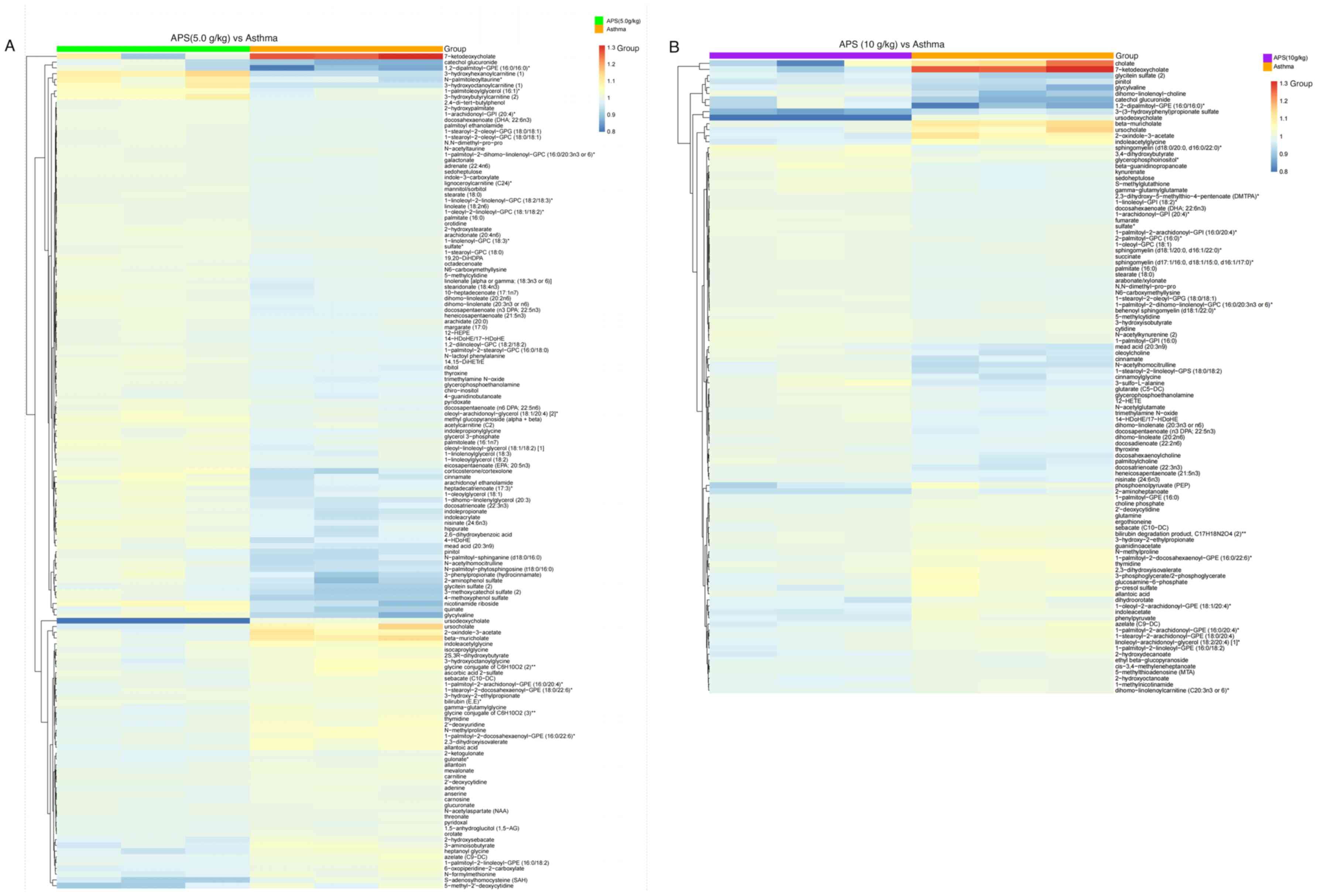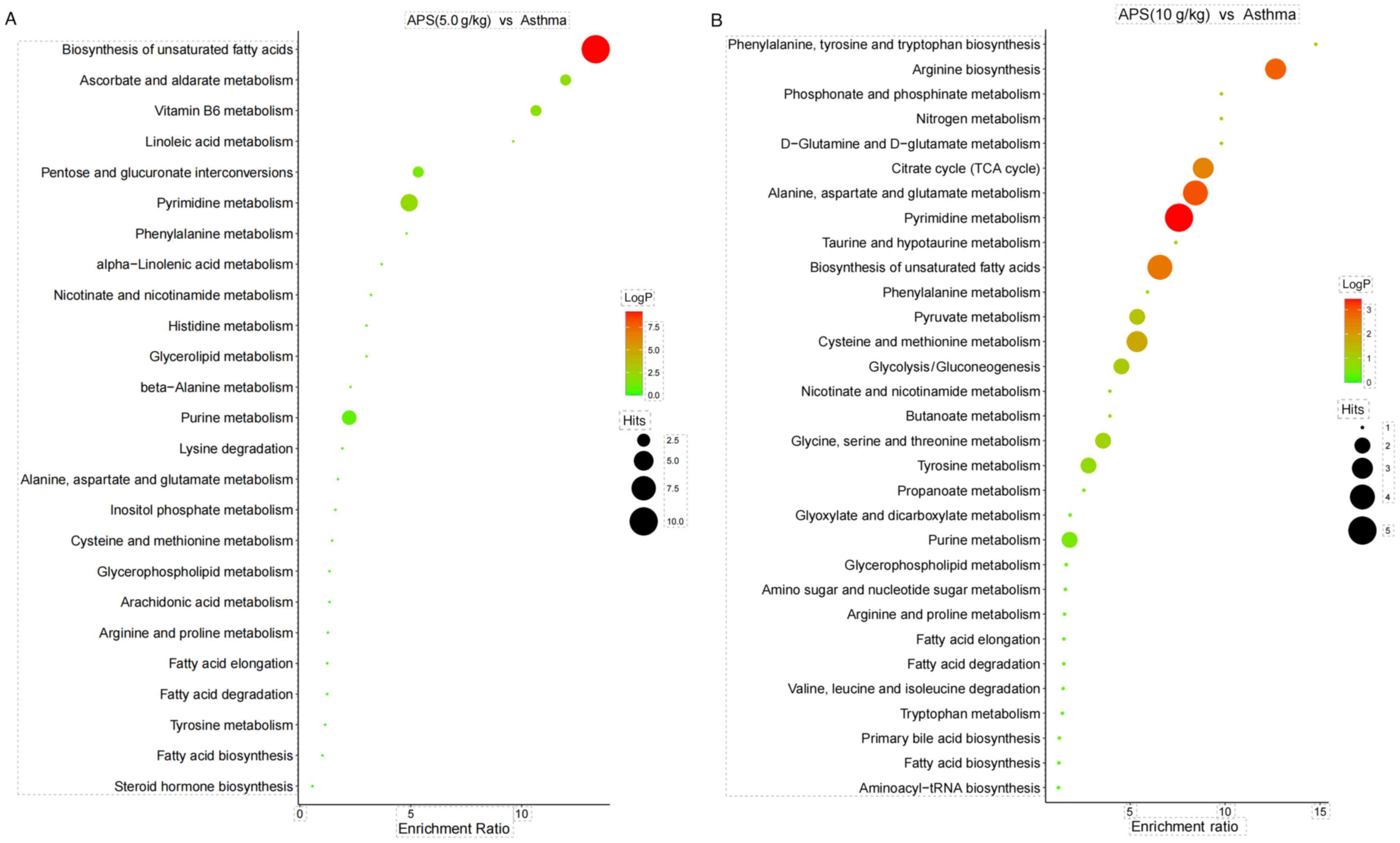|
1
|
Sun J, Bai S, Zhao J, Li D, Ma X, Ma L and
Su X: Mapping knowledge structure and research of the biologic
treatment of asthma: A bibliometric study. Front Immunol.
14(1034755)2023.PubMed/NCBI View Article : Google Scholar
|
|
2
|
Agusti A, Fabbri L, Lahousse L, Singh D
and Papi A: Single inhaler triple therapy (SITT) in asthma:
Systematic review and practice implications. Allergy. 77:1105–1113.
2022.PubMed/NCBI View Article : Google Scholar
|
|
3
|
Chan HL and Ng T: Traditional Chinese
Medicine (TCM) and allergic diseases. Curr Allergy Asthma Rep.
20(67)2020.PubMed/NCBI View Article : Google Scholar
|
|
4
|
Yang N and Shang YX: Epigallocatechin
gallate ameliorates airway inflammation by regulating Treg/Th17
imbalance in an asthmatic mouse model. Int Immunopharmacol.
72:422–428. 2019.PubMed/NCBI View Article : Google Scholar
|
|
5
|
Zheng Y, Ren W, Zhang L, Zhang Y, Liu D
and Liu Y: A review of the pharmacological action of
Astragalus polysaccharide. Front Pharmacol.
11(349)2020.PubMed/NCBI View Article : Google Scholar
|
|
6
|
Zhao X, Hu M, Zhou H, Yang Y, Shen S, You
Y and Xue Z: The role of gut microbiome in the complex relationship
between respiratory tract infection and asthma. Front Microbiol.
14(1219942)2023.PubMed/NCBI View Article : Google Scholar
|
|
7
|
Chen J, Wang A and Wang Q: Dysbiosis of
the gut microbiome is a risk factor for osteoarthritis in older
female adults: A case control study. BMC bioinformatics.
22(299)2021.PubMed/NCBI View Article : Google Scholar
|
|
8
|
Zhang D, Li S, Wang N, Tan HY, Zhang Z and
Feng Y: The Cross-Talk Between Gut microbiota and lungs in common
lung diseases. Front Microbiol. 11(301)2020.PubMed/NCBI View Article : Google Scholar
|
|
9
|
Hansen AW and Venkatachalam KV:
Sulfur-Element containing metabolic pathways in human health and
crosstalk with the microbiome. Biochem Biophys Rep.
35(101529)2023.PubMed/NCBI View Article : Google Scholar
|
|
10
|
Brown HN, Barber T, Renshaw D, Farnaud S,
Oduro-Donkor D and Turner MC: Associations between the gut
microbiome and metabolic, inflammatory, and appetitive effects of
sleeve gastrectomy. Obes Rev. 24(e13600)2023.PubMed/NCBI View Article : Google Scholar
|
|
11
|
Arrieta MC, Stiemsma LT, Dimitriu PA,
Thorson L, Russell S, Yurist-Doutsch S, Kuzeljevic B, Gold MJ,
Britton HM, Lefebvre DL, et al: Early infancy microbial and
metabolic alterations affect risk of childhood asthma. Sci Transl
Med. 7(307ra152)2015.PubMed/NCBI View Article : Google Scholar
|
|
12
|
Li R, Guo Q, Zhao J, Kang W, Lu R, Long Z,
Huang L, Chen Y, Zhao A, Wu J, et al: Assessing causal
relationships between gut microbiota and asthma: evidence from two
sample Mendelian randomization analysis. Front Immunol.
14(1148684)2023.PubMed/NCBI View Article : Google Scholar
|
|
13
|
Luo X, Pan Z, Luo S, Liu Q, Huang S, Yang
G, Nong F, Fu Y, Deng X and Zhou L: Effects of ceftriaxone-induced
intestinal dysbacteriosis on regulatory T cells validated by
anaphylactic mice. Int Immunopharmacol. 60:221–227. 2018.PubMed/NCBI View Article : Google Scholar
|
|
14
|
Loo EX, Llanora GV, Lu Q, Aw MM, Lee BW
and Shek LP: Supplementation with probiotics in the first 6 months
of life did not protect against eczema and allergy in at-risk Asian
infants: a 5-year follow-up. Int Arch Allergy Immunol. 163:25–28.
2014.PubMed/NCBI View Article : Google Scholar
|
|
15
|
Wang F, Wu F, Chen H and Tang B: The
effect of probiotics in the prevention of atopic dermatitis in
children: A systematic review and meta-analysis. Transl Pediatr.
12:731–748. 2023.PubMed/NCBI View Article : Google Scholar
|
|
16
|
Cavalcanti RFP, Gadelha FAAF, Paiva
Ferreira LKD, Paiva Ferreira LAM, Chaves Júnior JV, de Araújo
Batista RS, Melo TBL, de Souza FS, Alves AF, Maria Batista L and
Piuvezam MR: Limosilactobacillus fermentum modulates the gut-airway
axis by improving the immune response through FOXP3 activation on
combined allergic rhinitis and asthma syndrome (CARAS).
Immunobiology. 228(152721)2023.PubMed/NCBI View Article : Google Scholar
|
|
17
|
Dou M, Chu Y, Zhou X, Wang M, Li X, Ma R,
Fan Z, Zhao X, Wang W, Li S, et al: Matrine mediated immune
protection in MS by regulating gut microbiota and production of
SCFAs. Mol Neurobiol. 61:74–90. 2024.PubMed/NCBI View Article : Google Scholar
|
|
18
|
Hou Q, Huang J, Zhao L, Pan X, Liao C,
Jiang Q, Lei J, Guo F, Cui J, Guo Y and Zhang B: Dietary genistein
increases microbiota-derived short chain fatty acid levels,
modulates homeostasis of the aging gut, and extends healthspan and
lifespan. Pharmacol Res. 188(106676)2023.PubMed/NCBI View Article : Google Scholar
|
|
19
|
Tweeddale H, Notley-McRobb L and Ferenci
T: Assessing the effect of reactive oxygen species on Escherichia
coli using a metabolome approach. Redox Rep. 4:237–241.
1999.PubMed/NCBI View Article : Google Scholar
|
|
20
|
Shah SH, Kraus WE and Newgard CB:
Metabolomic profiling for the identification of novel biomarkers
and mechanisms related to common cardiovascular diseases: Form and
function. Circulation. 126:1110–1120. 2012.PubMed/NCBI View Article : Google Scholar
|
|
21
|
Robinson O and Lau CE: How do metabolic
processes age: Evidence from human metabolomic studies. Curr Opin
Chem Biol. 76(102360)2023.PubMed/NCBI View Article : Google Scholar
|
|
22
|
Yao Y, Wang X, Guan J, Xie C, Zhang H,
Yang J, Luo Y, Chen L, Zhao M, Huo B, et al: Metabolomic
differentiation of benign vs malignant pulmonary nodules with high
specificity via high-resolution mass spectrometry analysis of
patient sera. Nat Commun. 14(2339)2023.PubMed/NCBI View Article : Google Scholar
|
|
23
|
Bjerrum JT, Nielsen OH, Wang YL and Olsen
J: Technology insight: metabonomics in gastroenterology-basic
principles and potential clinical applications. Nat Clin Pract
Gastroenterol Hepatol. 5:332–343. 2008.PubMed/NCBI View Article : Google Scholar
|
|
24
|
Xu J, Zhang Q, Li Z, Gao Y, Pang Z, Wu Y,
Li G, Lu D, Zhang L and Li D: Astragalus polysaccharides
attenuate ovalbumin-induced allergic rhinitis in rats by inhibiting
NLRP3 inflammasome activation and NOD2-Mediated NF-κB activation. J
Med Food. 24:1–9. 2021.PubMed/NCBI View Article : Google Scholar
|
|
25
|
He X, Liu L, Luo X, Zhu J, Yang H, Wang J,
Chen L and Zhong L: Astragalus polysaccharide relieves
inflammatory responses in guinea pigs with allergic rhinitis via
ameliorating NF-kB-Mediated Treg/Th17 Imbalance. Am J Rhinol
Allergy. 36:638–648. 2022.PubMed/NCBI View Article : Google Scholar
|















